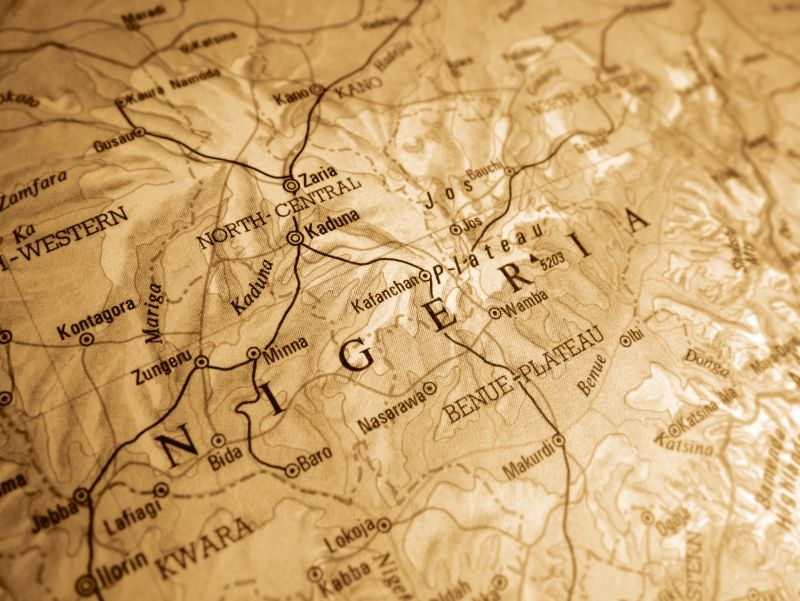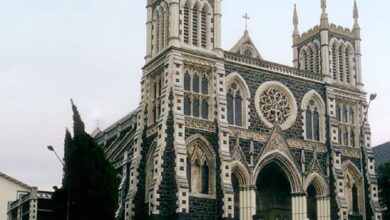Dozens still in captivity after Christmas Day attack in Nigeria, Catholic priest says

 null / Shutterstock
null / Shutterstock CNA Newsroom, Jan 11, 2023 / 16:45 pm (CNA).
Dozens of abductees are still being held in captivity following the Christmas Day attack on Angwan Aku Village in Kaduna, a state located in the north of Nigeria, a Catholic priest in the West African country has told ACI Africa in an interview.
On Christmas Day 2022, militant Fulani herdsmen and other terrorists attacked Angwan Aku village, reportedly killing one person and abducting 53 others, according to a Persecution.org report.
In the report, an eyewitness is quoted as telling Morning Star News: “The church worship service was about to commence when the attackers arrived at the village riding on motorbikes and shooting sporadically.”
“They killed one Christian and kidnapped 53 other Christians who are still held captive,” he said.
In a Tuesday, Jan. 10, interview with ACI Africa, Father Justine John Dyikuk confirmed the Dec. 25 attack, saying: “We got the sad news of the Christmas Day attack on Angwan village with dozens kidnapped and one person killed.”
“As we speak now some dozens are still in captivity while a few managed to escape back to the village,” Dyikuk said.
Fulani herdsmen and other unidentified bandits are said to have also staged attacks on Mallagum and Kagoro villages in Kaduna State some days before Christmas Day, during which 40 Christians were reportedly killed in Mallagum village. Three Christians lost their lives during the attack on Kagoro village on Dec. 23.
Confirming the attacks on the two Nigerian villages, Dyikuk told ACI Africa: “Eyewitness on the ground confirmed to me that on Sunday, Dec. 18, 2022, not fewer than 40 people were killed; many were injured, over 102 houses and harvested grains were burnt down, and many were displaced in Mallagum 1 and Sakong communities, in the Southern Kaduna area of Nigeria.”
“The terrorists had sophisticated weapons,” the Nigerian Catholic priest told ACI Africa.
He went on to highlight some of the reasons for the recurrent attacks in what is Africa’s most populous nation.
“Locals suspect that they were attacked because of three reasons: they are Christians comprising Catholics, evangelicals, and Baptists; because the assailants want to decapitate the region economically; and to scare the people of Southern Kaduna ahead of the 2023 general elections,” Dyikuk said.
Nigeria has been experiencing insecurity since 2009, which started when Boko Haram insurgency emerged with the aim of turning the West African country into an Islamic state.
Since then, the group, one of largest Islamist groups in Africa, has been orchestrating indiscriminate terrorist attacks on various targets, including religious and political groups as well as civilians.
The situation has further been complicated by the involvement of the predominantly Muslim Fulani herdsmen, also referred to as the Fulani Militia, who have been clashing frequently with Christian farmers.
At a Dec. 22 interdenominational memorial service for the 40 people killed in Mallagum, mourners were encouraged to take defensive measures against a years-long spate of terrorism and violence in the largely Christian farming communities of northern and central Nigeria.
In the Jan. 10 interview with ACI Africa, Father Dyikuk said in reference to the security challenge in Nigeria: “It is not clear if the government can solve the problem because there is lack of political will to do so.”
“The security agencies can deal with the problem but they have to be given command from the top,” he told ACI Africa.
He continued: “The ethnic cleansing happening in Southern Kaduna can be tamed if the problem is named for what it is and all stakeholders, government, traditional rulers, politicians, religious leaders, women, and youth leaders cooperate to provide intelligence to security operatives.”
“The situation is difficult because the terrorists operate a guerilla tactic of hit and run. So, the security [agents] find themselves fighting a pseudo-enemy,” the convener of the Media Team Network Initiative (MTNI) told ACI Africa.
He added: “Sincerity of purpose, commitment in terms of patriotism to nation first, and not pandering to religious and ethnic cleavages would bring the insecurity in Southern Kaduna and by extension Nigeria to an end.”
This story was first published by ACI Africa, CNA’s African news partner. It has been adapted by CNA.




